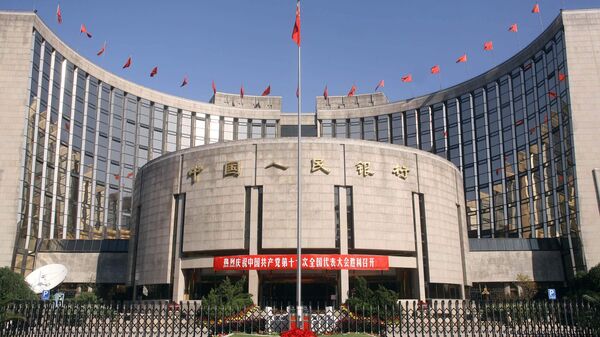According to Brad Setser, a former US trade and Treasury offi
According to Brad Setser, a former US trade and Treasury official, China is sitting on a $6 trillion pile of money, half of which is “hidden,” posing a new kind of risk to the global economy.
According to Brad Setser, a former US trade and Treasury official, China is sitting on a $6 trillion pile of money, half of which is “hidden,” posing a new kind of risk to the global economy.
Setser explained in a report on The China Project, a New York-based news platform, that a significant portion of China’s foreign-exchange reserves does not appear in the official books of the People’s Bank of China. Instead, these reserves, known as “shadow reserves,” are held by entities such as state commercial lenders and policy banks.
Setser explained in a report on The China Project, a New York-based news platform, that a significant portion of China’s foreign-exchange reserves does not appear in the official books of the People’s Bank of China. Instead, these reserves, known as “shadow reserves,” are held by entities such as state commercial lenders and policy banks.
While the official reserves have remained stagnant in recent years, the hidden reserves have likely increased alongside China’s export surplus.
While the official reserves have remained stagnant in recent years, the hidden reserves have likely increased alongside China’s export surplus.
Setser highlighted the lack of transparency regarding China’s reserves as a concern for the world, stating that China’s central role in the global economy means that any actions it takes, whether visible or invisible, will ultimately have a substantial impact on the rest of the world. “China’s lack of transparency here is a bit of a problem for the world,” Setser wrote. “China structurally is so central to the global economy that anything it does, seen or unseen, will eventually have an enormous impact on the rest of the world.”
Setser highlighted the lack of transparency regarding China’s reserves as a concern for the world, stating that China’s central role in the global economy means that any actions it takes, whether visible or invisible, will ultimately have a substantial impact on the rest of the world. “China’s lack of transparency here is a bit of a problem for the world,” Setser wrote. “China structurally is so central to the global economy that anything it does, seen or unseen, will eventually have an enormous impact on the rest of the world.”
One example of the influence of China’s reserves is their role in funding the Belt and Road Initiative. Setser noted that this initiative, which aims to develop global infrastructure, originated from China’s efforts to diversify its foreign exchange holdings after the financial crisis. He emphasised that China’s economic power is significant enough to have a far-reaching global impact, given its size and unbalanced economy. “They are powerful enough of an economic force such that an entire, global, decades-long infrastructure plan was in some ways, just a side effect of a 2009 decision to find new ways to manage China’s foreign exchange,” he stated adding “all its activities just have an outsized global impact.”
One example of the influence of China’s reserves is their role in funding the Belt and Road Initiative. Setser noted that this initiative, which aims to develop global infrastructure, originated from China’s efforts to diversify its foreign exchange holdings after the financial crisis. He emphasised that China’s economic power is significant enough to have a far-reaching global impact, given its size and unbalanced economy. “They are powerful enough of an economic force such that an entire, global, decades-long infrastructure plan was in some ways, just a side effect of a 2009 decision to find new ways to manage China’s foreign exchange,” he stated adding “all its activities just have an outsized global impact.”
Setser estimated that institutions reporting to the central government likely have around $6 trillion in foreign assets, surpassing the $3.1 trillion in official reserves reported by the State Administration of Foreign Exchange in 2022.
Setser estimated that institutions reporting to the central government likely have around $6 trillion in foreign assets, surpassing the $3.1 trillion in official reserves reported by the State Administration of Foreign Exchange in 2022.
He emphasised that these hidden reserves highlight the fact that, despite discussions about China’s domestic debt issues, China remains a massive creditor on a global scale, and the weight of its foreign exchange accumulation continues to be felt worldwide.
He emphasised that these hidden reserves highlight the fact that, despite discussions about China’s domestic debt issues, China remains a massive creditor on a global scale, and the weight of its foreign exchange accumulation continues to be felt worldwide.
Brad Setser is currently a senior fellow at the Council on Foreign Relations, a think tank based in New York.
Brad Setser is currently a senior fellow at the Council on Foreign Relations, a think tank based in New York.
(With inputs from Bloomberg)
(With inputs from Bloomberg)
www.livemint.com
